-
Windows
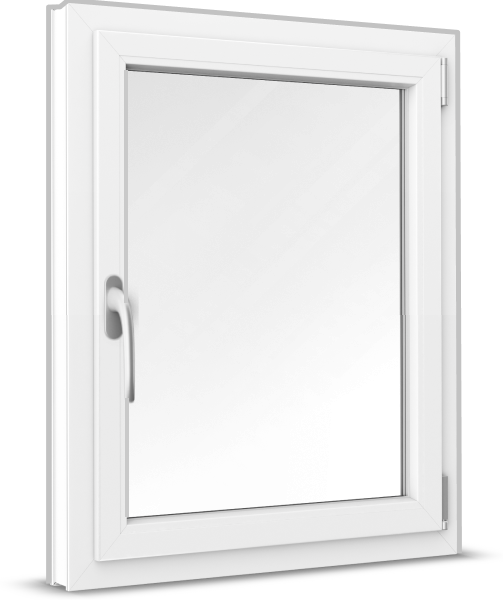 Windows
Windows
-
French Doors
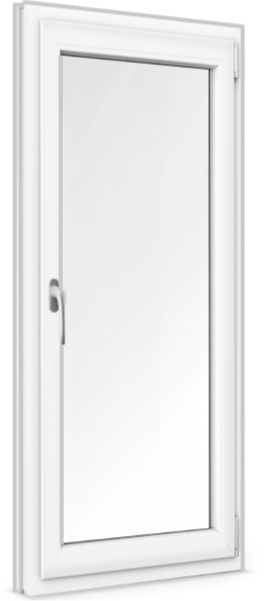 French Doors
French Doors
-
Patio Doors
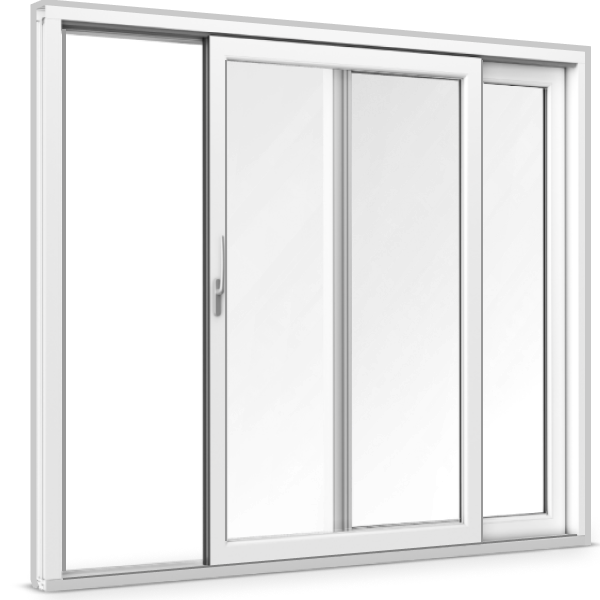 Patio Doors
Patio Doors
-
Front Doors
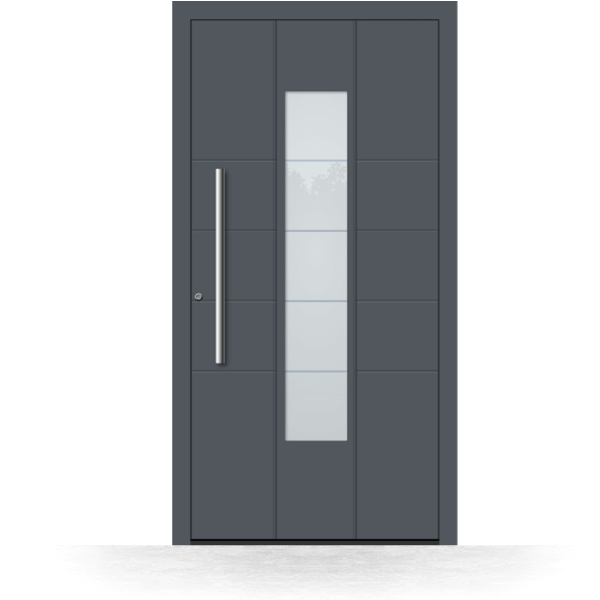 Front Doors
Front Doors
-
Roller Shutters
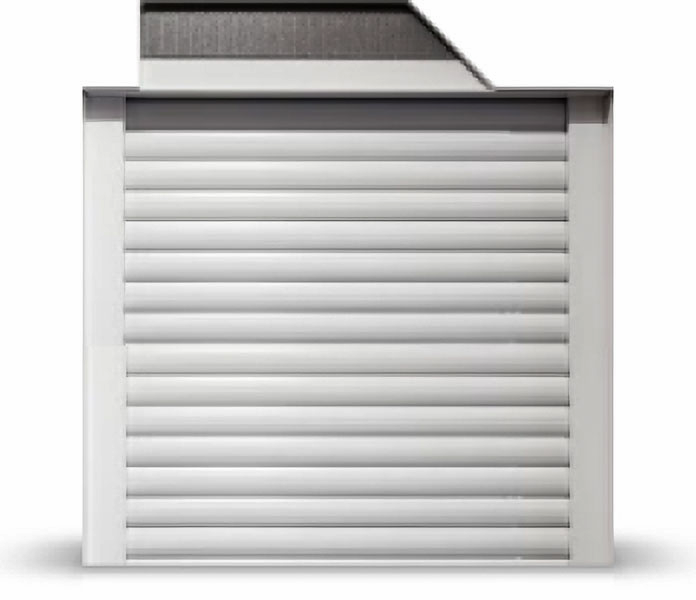 Roller Shutters
Roller Shutters
-
Window Sills
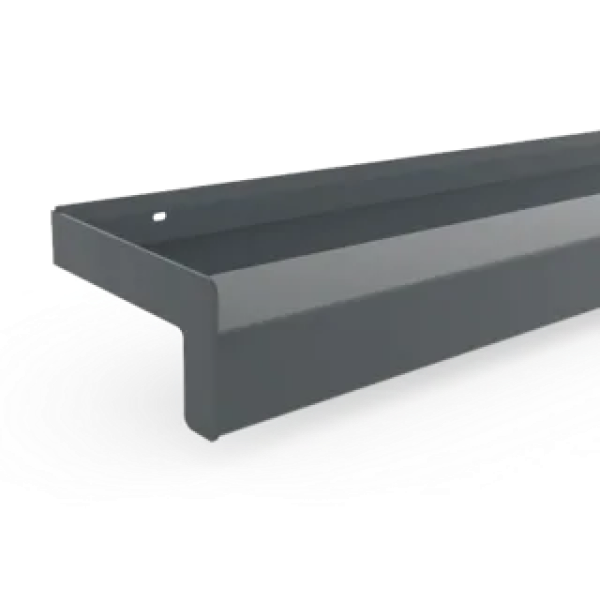 Window Sills
Window Sills
Sign in
Contact us
Thermal insulation and energy efficiency are among the most important parameters before purchasing a new lift and slide door. Uw values – the so-called heat transfer coefficient – can help when selecting the right door for you. The heat transfer coefficient calculates the loss of thermal energy through a solid body due to temperature difference. The smaller the value of a lift and slide door, the less heat is lost through the door and the less you have to heat it on cold days. So if you want to save in the long term, you're doing a good thing by choosing insulating building materials.
| Glass Ug value W/(m²k) | Frame Uf value W/(m²k) | Window Uw value insulating glass edge seal aluminium W/(m²k) | Window Uw value insulating glass edge seal KSD W/(m²k) | Window Uw value insulating glass edge seal Swisspacer Ultimate W/(m²k) |
|---|---|---|---|---|
| 1.1 | 1.8 | 1.2 (1.22) | 1.2 (1.18) | 1.2 (1.16) |
| 1.0 | 1.8 | 1.2 (1.15) | 1.1 (1.11) | 1.1 (1.09) |
| 0.7 | 1.8 | 0.9 (0.93) | 0.9 (0.88) | 0.9 (0.87) |
| 0.6 | 1.8 | 0.9 (0.85) | 0.8 (0.81) | 0.8 (0.79) |
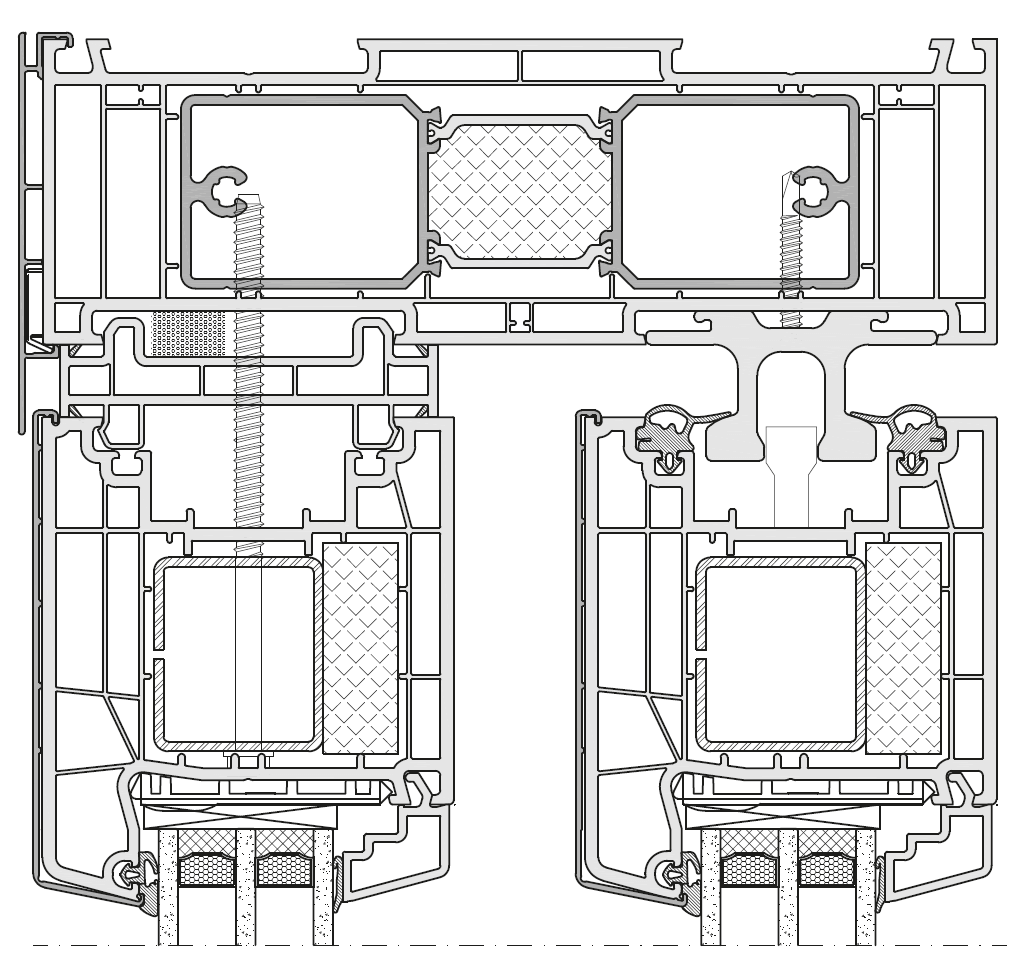
TwinSet Premium - profile section
In the case of a uPVC-alu lift-and-slide door, the Uw values are calculated using the individual U values of each window frame and glazing, as well as the heat loss along the edge of the glass. For the sake of comparison, a standard window size of 1230 x 1480 mm is usually used for the calculation, but it can generally be assumed that a larger window will result in a lower value.
A thermally separated edge seal along the insulating glass - the so-called "warm edge" - further improves the thermal insulation of the entire door.
The heat transfer coefficient of a lift-and-slide door made of uPVC-alu determines whether a lift-and-slide door can be classified as suitable for passive houses and also whether funding from the KfW is possible. Energy savings not only protect the environment, they also make an immediate difference on your energy bill.
The difference between a Uw value of 3.5 and a value of 0.83 can make a difference of more than 1000 litres of heating oil per year for an area of 30 m².